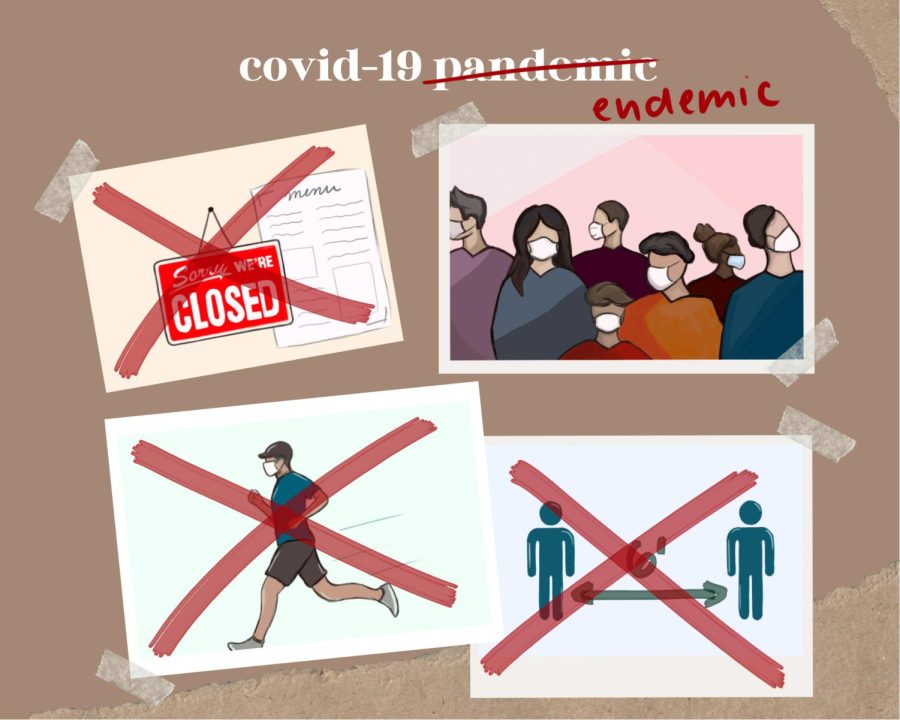This is not your expected endemic
We’re approaching the long-awaited endemic.
But, it just might not be the one we hoped for. Instead of returning to the state of our world before the COVID-19 pandemic, the reality is that this endemic has to include the virus that plagued our sense of “normal.”
With the Centers for Disease Control and Prevention changing their COVID-19 guidelines and loosening many trademark rules of the pandemic, we were hopeful in the prospective end to the pandemic as we waved our masks and distancing regulations goodbye.
But this doesn’t mark an endemic; here’s why:
It’s no new information that our world was flipped on its head when the COVID-19 pandemic hit. Words like quarantine were added to our vocabulary, stockpiles of masks and hand sanitizer were added to our shopping carts and every kid got to live out their dream of staying home from school.
But we’ve lived with the pandemic for more than two years, and as restrictions loosen, health officials have hopes of moving past the pandemic. So you’d expect a return to “normal”, right?
Wrong.
According to CDC scientist Greta Massetti, “This guidance acknowledges that the pandemic is not over, but also helps us move to a point where COVID-19 no longer severely disrupts our daily lives.”
The thing is, we will never really reach a point where COVID-19 isn’t a part of our lives. While many believe that COVID-19 variants will get weaker as time goes on, Omicron has proved this wrong with many sub variants that can resist vaccination.
According to the director of the Aaron Diamond AIDS Research Center David Ho, “As these highly transmissible sub variants continue to expand around the globe, they will lead to more breakthrough infections in people who are vaccinated and boosted with currently available mRNA vaccines.” However, vaccines are still essential, because [they] provide protection against extreme disease.
And herd immunity isn’t going to help either. It is a stretch to assume enough people will get vaccinated against COVID-19 to obtain herd immunity, whether it be because of distrust or religious reasons.
So what does this mean? First of all, we as a society need to recognize that the effects of the pandemic are irreversible. We are not working towards what we were before COVID-19, but towards a new future where COVID-19 still plays a part, just not one as demanding as before.
Two, wear masks where you see fit and be cautious of mass gatherings.
Although this endemic does not represent being able to live our lives as normally as before, with the vaccines and the looser CDC guidelines, it signifies an important step towards a new future.





